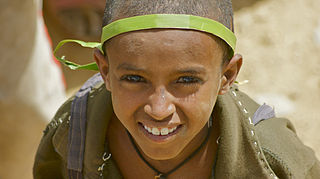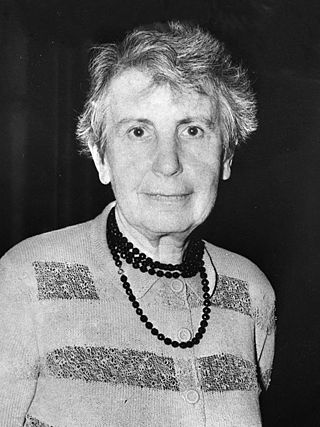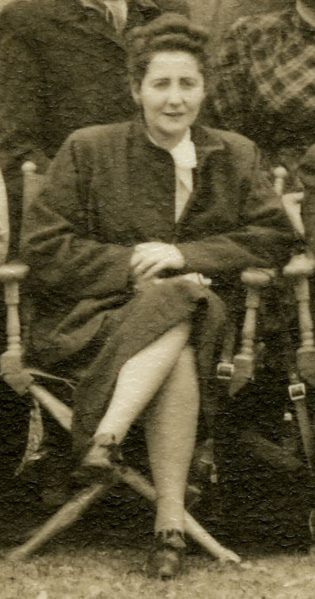Related Research Articles

Prejudice can be an affective feeling towards a person based on their perceived group membership. The word is often used to refer to a preconceived evaluation or classification of another person based on that person's perceived personal characteristics, such as political affiliation, sex, gender, gender identity, beliefs, values, social class, age, disability, religion, sexuality, race, ethnicity, language, nationality, culture, complexion, beauty, height, body weight, occupation, wealth, education, criminality, sport-team affiliation, music tastes or other perceived characteristics.

A child (pl. children) is a human being between the stages of birth and puberty, or between the developmental period of infancy and puberty. It may also refer to an unborn human being. The legal definition of child generally refers to a minor, otherwise known as a person younger than the age of majority. Children generally have fewer rights and responsibilities than adults. They are generally classed as unable to make serious decisions.
Heteronormativity is the concept that heterosexuality is the preferred or normal sexual orientation. It assumes the gender binary and that sexual and marital relations are most fitting between people of opposite sex.

A boy is a young male human. The term is commonly used for a child or an adolescent. When a male human reaches adulthood, he is usually described as a man.

Anna Freud CBE was a British psychoanalyst of Austrian–Jewish descent. She was born in Vienna, the sixth and youngest child of Sigmund Freud and Martha Bernays. She followed the path of her father and contributed to the field of psychoanalysis. Alongside Hermine Hug-Hellmuth and Melanie Klein, she may be considered the founder of psychoanalytic child psychology.
Heterosexism is a system of attitudes, bias, and discrimination in favor of heterosexuality and heterosexual relationships. According to Elizabeth Cramer, it can include the belief that all people are or should be heterosexual and that heterosexual relationships are the only norm and therefore superior.
Children's rights or the rights of children are a subset of human rights with particular attention to the rights of special protection and care afforded to minors. The 1989 Convention on the Rights of the Child (CRC) defines a child as "any human being below the age of eighteen years, unless under the law applicable to the child, majority is attained earlier." Children's rights includes their right to association with both parents, human identity as well as the basic needs for physical protection, food, universal state-paid education, health care, and criminal laws appropriate for the age and development of the child, equal protection of the child's civil rights, and freedom from discrimination on the basis of the child's race, gender, sexual orientation, gender identity, national origin, religion, disability, color, ethnicity, or other characteristics.
White privilege, or white skin privilege, is the societal privilege that benefits white people over non-white people in some societies, particularly if they are otherwise under the same social, political, or economic circumstances. With roots in European colonialism and imperialism, and the Atlantic slave trade, white privilege has developed in circumstances that have broadly sought to protect white racial privileges, various national citizenships, and other rights or special benefits.
Adultism is the abuse of the power that adults have over children. It has been defined as "the power adults have over children", "prejudice and accompanying systematic discrimination against young people", and "bias towards adults... and the social addiction to adults, including their ideas, activities, and attitudes". This phenomenon is said to affect families, schools, justice systems and the economy, in addition to other areas of society. Its impacts are largely regarded as negative, except in cases related to child protection and the overriding social contract. Increased study of adultism has recently occurred in the fields of education, psychology, civic engagement, higher education and further, with contributions from Europe, North America and South America.

Child abuse is physical, sexual, emotional and/or psychological maltreatment or neglect of a child, especially by a parent or a caregiver. Child abuse may include any act or failure to act by a parent or a caregiver that results in actual or potential wrongful harm to a child and can occur in a child's home, or in organizations, schools, or communities the child interacts with.
Elisabeth Young-Bruehl was an American academic, psychotherapist and psychoanalyst. She published a wide range of books, most notably biographies of Hannah Arendt and Anna Freud. Her 1982 biography of Arendt won the first Harcourt Award while The Anatomy of Prejudices won the Association of American Publishers' prize for Best Book in Psychology in 1996. She was a member of the Toronto Psychoanalytic Society and co-founder of Caversham Productions, a company that makes psychoanalytic educational materials.
Gender variance or gender nonconformity is behavior or gender expression by an individual that does not match masculine or feminine gender norms. A gender-nonconforming person may be variant in their gender identity, being transgender or non-binary, or they may be cisgender. In the case of transgender people, they may be perceived, or perceive themselves as, gender-nonconforming before transitioning, but might not be perceived as such after transitioning. Transgender adults who appear gender-nonconforming after transition are more likely to experience discrimination.
Social pedagogy describes a holistic and relationship-centred way of working in care and educational settings with people across the course of their lives. In many countries across Europe, it has a long-standing tradition as a field of practice and academic discipline concerned with addressing social inequality and facilitating social change by nurturing learning, well-being and connection both at an individual and community level. The term 'pedagogy' originates from the Greek pais (child) and agein, with the prefix 'social' emphasising that upbringing is not only the responsibility of parents but a shared responsibility of society. Social pedagogy has therefore evolved in somewhat different ways in different countries and reflects cultural and societal norms, attitudes and notions of education and upbringing, of the relationship between the individual and society, and of social welfare provision for its marginalised members. Social pedagogues work within a range of different settings, from early years through adulthood to working with disadvantaged adult groups as well as older people. To achieve a holistic perspective within each of these settings, social pedagogy draws together theories and concepts from related disciplines such as sociology, psychology, education, philosophy, medical sciences, and social work.

The National Organization of Short Statured Adults (NOSSA) was an American non-profit advocacy group for adults of short stature. The organization clearly defined "short stature" to be men 170 cm (5'7") or below and women 157.5 cm (5'2") or below in height. The group advocated on behalf of short people and hoped to foster greater acceptance of short people within society. NOSSA was opposed to the prejudice known as heightism. The group defined heightism as, "a prejudiced attitude about human height that often results in discrimination. It is based on the belief that short stature is an inferior trait and therefore undesirable." The organization ran a series of public education programs, sponsored height-related research, acted as a media "watch-dog" group, provided legal assistance for those affected by heightism, hosted online discussion groups, and invited members to gather once a year for an annual convention. NOSSA ended in early 2013 due to lack of support.
Fear of children, or occasionally called paedophobia, is fear triggered by the presence or thinking of children or infants. It is an emotional state of fear, disdain, aversion, or prejudice toward children or youth. Paedophobia is in some usages identical to ephebiphobia.
Adolescent health, or youth health, is the range of approaches to preventing, detecting or treating young people's health and well-being.
Anti-oppressive practice is an interdisciplinary approach primarily rooted within the practice of social work that focuses on ending socioeconomic oppression. It requires the practitioner to critically examine the power imbalance inherent in an organizational structure with regards to the larger sociocultural and political context in order to develop strategies for creating an egalitarian environment free from oppression, racism, and other forms of discrimination in the larger society, by engaging at the legal and political level. In general community practice it is about responding to oppression by dominant groups and individuals. In social services it regulates any possible oppressive practices and helps in delivering welfare services in an inclusive manner.
Moral development focuses on the emergence, change, and understanding of morality from infancy through adulthood. The theory states that morality develops across a lifespan in a variety of ways and is influenced by an individual's experiences and behavior when faced with moral issues through different periods of physical and cognitive development. Morality concerns an individual's reforming sense of what is right and wrong; it is for this reason that young children have different moral judgment and character than that of a grown adult. Morality in itself is often a synonym for "rightness" or "goodness." It also refers to a specific code of conduct that is derived from one's culture, religion, or personal philosophy that guides one's actions, behaviors, and thoughts.
Chester Middlebrook Pierce was an American psychiatrist and tenured professor of education and psychiatry at Harvard Medical School. He was the first African-American full professor at Massachusetts General Hospital and was past president of the American Board of Psychiatry and Neurology and the American Orthopsychiatric Association. He was a fellow in the American Academy of Arts and Sciences. He was a senior consultant for the acclaimed educational children's television series Sesame Street. He also coined and developed the term "microaggression".

Elisabeth Rozetta Geleerd Loewenstein was a Dutch-American psychoanalyst. Born to an upper-middle-class family in Rotterdam, Geleerd studied psychoanalysis in Vienna, then London, under Anna Freud. Building a career in the United States, she became one of the nation's major practitioners in child and adolescent psychoanalysis throughout the mid-20th century. Geleerd specialized in the psychoanalysis of psychosis, including schizophrenia, and was an influential writer on psychoanalysis in childhood schizophrenia. She was one of the first writers to consider the concept of borderline personality disorder in childhood.
References
- ↑ "Childism". Wiktionary.
- ↑ https://www.apa.org/monitor/2023/03/cover-new-concept-of-aging
- ↑ https://doi.org/10.1080/00933104.2023.2208538
- ↑ Pierce, Chester M.; Allen, Gail B. (1975). "Childism". Psychiatric Annals. 5 (7): 15–24. doi:10.3928/0048-5713-19750701-04.
- ↑ Hunt, Peter (1991). Criticism, Theory, and Children’s Literature. Basil Blackwell. ISBN 0-631-16231-3.
- ↑ Young-Bruehl, Elisabeth (2012). Childism: Confronting Prejudice Against Children. Yale University Press. ISBN 978-0-300-17311-6.
- ↑ Wall, John, Ethics in Light of Childhood. Georgetown University Press, 2011. ISBN 9781589016927
- ↑ "About". Childism Institute. Retrieved 2021-05-07.
- ↑ https://brill.com/view/journals/chil/29/2/article-p353_353.xml?language=en